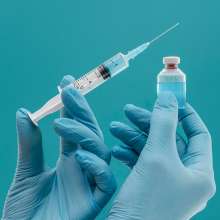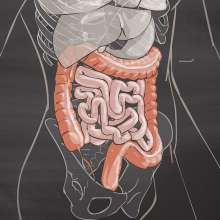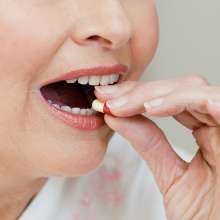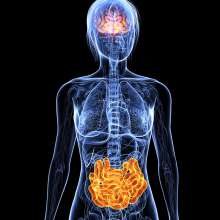Physical activity status in humans is known to correlate with microbiota composition. Researchers in this study examined this together with diet patterns.
A team of scientists at the University of Illinois investigated whether six weeks of aerobic exercise training alters gut microbial communities and fecal short-chain fatty acids (SCFA) in previously sedentary lean and obese adults, under consistent dietary patterns.
Eighteen lean and 14 obese sedentary adults were recruited, had their gut microbiomes sampled, and started on an exercise program during which they performed cardiovascular exercise for 30-60 minutes three times a week for six weeks.
The researchers sampled participants' gut microbiomes at the end of the exercise program, and after another six weeks of sedentary behaviour. Participants maintained their usual diets throughout the course of the study.
Findings
Faecal concentrations of SCFAs, in particular butyrate, went up as a result of exercise. These levels declined again after the participants reverted to a sedentary lifestyle.
Genetic tests of the microbiota confirmed that this corresponded to changes in the proportion of microbes that produce butyrate and other SCFAs.
The most dramatic increases were seen in lean participants, who had significantly lower levels of SCFA-producing microbes to begin with. Obese participants saw only modest increases in the proportion of SCFA-producing microbes.
The ratios of different microbes differed between lean and obese participants at every stage of the study. Clear differences were found in how the microbiome of lean and obese participants somebody in their responses to exercise.
Implications
These findings suggest that exercise training induces compositional and functional changes in the human gut microbiota that are dependent on obesity status, independent of diet,and contingent on the sustainment of exercise.
Exercise-induced shifts in the gut microbiota and SCFA may have implications for diseases of the gut. Physical activity has been shown to reduce risk of colorectal cancer and irritable bowel disease. Butyrate is required for maintaining gut barrier function and is a critical metabolite regulating the anti- inflammatory/regulatory phenotypes of gut-resident immune cells.
The researchers suggested that exercise-induced shifts in SCFA, butyrate-producing taxa, and metabolic capacity to produce SCFA may have the potential to prevent the occurrence or offset the symptoms of irritable bowel disease. Future studies are needed to address these hypotheses more closely.
In summary, these data indicate for the first time that exercise training can significantly modulate the composition and metabolic capacity of the human gut microbiota. Exercise-induced changes in the gut microbiota are integral to understanding the overall physiological response to exercise training in humans.





